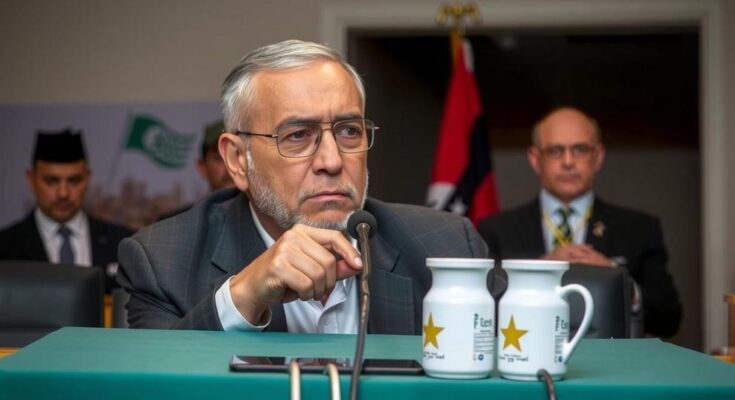Ahmad al-Sharaa, the leader of Hayat Tahrir Al-Sham, has indicated that Syria may not hold elections for four years, citing the need for infrastructure preparation. He plans to draft a new constitution, which could take three years, and aims to navigate the transition of power. Al-Sharaa is also fostering international relations and distancing himself from his jihadist past, having recently had a bounty lifted by the United States.
Elections in Syria may not occur for as long as four years, as articulated by the country’s de facto leader, Ahmad al-Sharaa, following his group’s recent overthrow of the Assad regime. This statement marks the first public indication of an electoral timeline from al-Sharaa, who previously led the Islamist group Hayat Tahrir Al-Sham (HTS). He emphasized the necessity of preparing the nation’s infrastructure before proceeding with elections and indicated that drafting a new constitution could take up to three years. Al-Sharaa outlined the importance of creating a stable governance structure to prevent past grievances from resurfacing. Furthermore, the HTS plans to dissolve itself in conjunction with an upcoming National Dialogue Conference aimed at managing the transition, although no date for this conference has yet been established.
In relation to international affairs, al-Sharaa recently engaged with a Ukrainian delegation, which underscores the evolving diplomatic landscape following the upheaval in Syria. He has been actively seeking international legitimacy and has distanced himself from his previous ties to Al-Qaeda. Notably, the United States has lifted a long-standing bounty on his head, indicating a shift in approach as the U.S. seeks to address significant challenges in the region, including terrorism. Meanwhile, al-Sharaa acknowledged the potential role of Saudi Arabia in shaping Syria’s future and suggested that Iran must reassess its involvement in the region in light of the changes.
The context of this article revolves around the political transformation in Syria following the recent overthrow of Bashar al-Assad’s regime by the Hayat Tahrir Al-Sham (HTS), an Islamist group. Ahmad al-Sharaa, the leader of HTS, has asserted the need to establish a formal political structure and stability through impending elections and a new constitution. This development is significant as it signals a potential reconciliation and restructuring phase for Syria, amidst the backdrop of regional and international engagements aimed at legitimizing the new leadership.
In summary, the prospect of Syrian elections being postponed for up to four years highlights the complexities of transitioning governance in a nation recently liberated from decades of autocratic rule. Ahmad al-Sharaa’s emphasis on infrastructure readiness, coupled with international diplomatic outreach, marks a pivotal moment in Syria’s journey toward rebuilding and establishing a sustainable political system. The potential role of external powers, including a reassessment of Iran’s influence and enhanced Saudi engagement, will be crucial in shaping Syria’s future landscape.
Original Source: www.cnn.com




